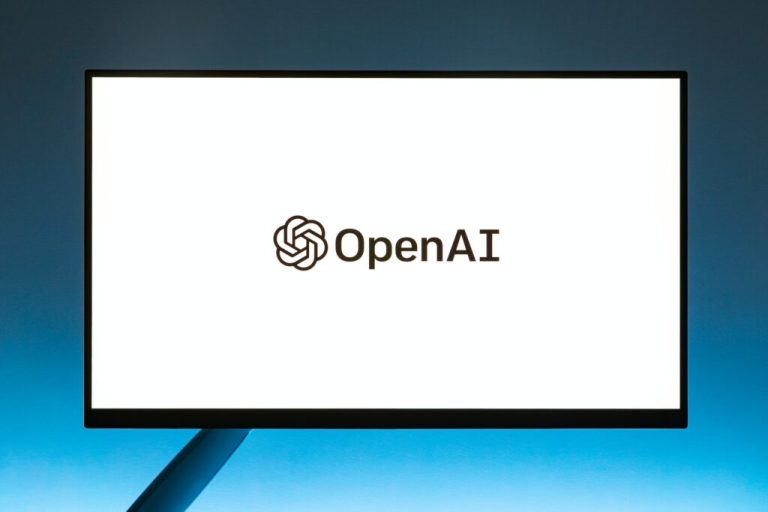How AI Chatbots Are Revolutionizing the Future of Work
Are AI Chatbots Really Changing the World of Work?
Predictions about AI chatbots transforming the workplace have been abundant, yet current data suggests a more subdued impact — at least for now. While generative AI continues to make strides, the anticipated seismic shift in employment seems more like a gentle ripple.
Researchers Anders Humlum from the University of Chicago and Emilie Vestergaard from the University of Copenhagen took a thorough approach. They analyzed responses from two significant surveys conducted in late 2023 and 2024, correlating this data with comprehensive records about jobs and pay in Denmark. Their study focused on approximately 25,000 workers across 7,000 different organizations, specifically examining 11 job roles projected to be most affected by AI.
The Rise of AI Chatbots in Workplaces
AI chatbots have become commonplace in Danish workplaces, with supervisors now advocating for their use — a marked shift from the initial hesitance due to concerns like data privacy. Nearly 40% of employers have implemented in-house chatbots, and about one-third of employees have received formal training on utilizing these tools.
With management approval, the number of employees using chatbots nearly doubled, increasing from 47% to 83%. This shift also contributed to narrowing the gender gap in chatbot usage, particularly when companies encouraged use and provided training.
The Economic Impact: A Different Story
Despite widespread use and investment, significant economic benefits are notably absent. Employing statistical comparisons between those utilizing AI chatbots and those who are not, from before and after the emergence of ChatGPT, revealed minimal changes. The researchers reported “precise zeros” in terms of salary increases or changes in recorded work hours across the 11 job categories under study. They remain confident that none of the observed effects exceeded a mere 1% change.
This trend was consistent, even among enthusiasts who adopted chatbot technology early or worked in environments where usage was actively promoted. Workplaces with high chatbot usage did not exhibit different hiring trends, wage changes, or staff retention compared to those with lower usage rates.
The Subtle Productivity Gains
So, why the disparity? Despite the hype and substantial investments, the anticipated improvements in productivity have not materialized to the extent expected. The study outlines two likely reasons: real-world productivity boosts are less impressive than aimed for, and any gains observed haven’t translated into higher wages.
Users of AI chatbots reported feelings of improved work quality and creativity, with the primary benefit noted being time savings. However, analysis indicated that users only saved about 2.8% of total work hours — a far cry from the substantial productivity increases of 15%, 30%, or even 50% seen in controlled environments.
This discrepancy arises from various factors. The lab experiments usually target tasks where chatbots excel, such as coding or basic customer service inquiries, while this study encompassed a broader spectrum of roles, including those like teaching, where benefits are likely diminished.
The researchers emphasize the significance of “complementary investments.” Organizations that fostered chatbot adoption and provided adequate training saw higher reported benefits — such as time savings, enhanced quality, and increased creativity. This suggests that merely having access to the technology is insufficient; an appropriate supportive environment is crucial for unlocking its full potential.
Even the modest time savings noted did not substantially impact earnings, with only an estimated 3% to 7% of time saved translating into actual wage increases.
In today’s work environment, many individuals may feel hesitant to request raises, particularly if they’re utilizing tools that haven’t received official approval from management. This reticence might stem from typical workplace inertia, making it difficult to advocate for increased earnings.
Interestingly, AI chatbots are not only speeding up existing tasks but also generating entirely new ones. Data shows that approximately 17% of users of these tools report newfound responsibilities, mostly composed of unique task types. This trend is particularly evident in organizations that promote the use of chatbots. Even among non-users, about 5% observed the emergence of new tasks due to AI’s influence, with teachers, for instance, adapting assignments to identify AI-generated homework.
So, what kind of new responsibilities are arising? Examples include integrating AI into daily workflows, drafting content with AI assistance, and addressing ethical considerations to ensure compliance and transparency. This indicates that many companies are still navigating this realm, focusing on adaptation rather than immediate advantages.
What does this mean for the impact of AI chatbots on the workforce? Researchers are cautious not to dismiss the potential of generative AI outright. They foresee avenues for its significance to increase over time, particularly as organizations refine their integration strategies and as these new tasks continue to evolve.
However, the current landscape reveals a dissonance between expectations and reality regarding job market transformations. The researchers emphasize that, despite swift adoption and notable financial investments, the impact of AI chatbots on productivity and labor market outcomes remains minimal to date. This situation is reminiscent of the early computer era, where technology was pervasive but had little effect on measurable productivity statistics. Two years after the accelerated adoption of ChatGPT, its influence on employment and wages is surprisingly modest, suggesting that while a revolution may be on the horizon, it’s not happening quickly.
For those interested in exploring more about AI and big data, consider attending events like the AI & Big Data Expo held in Amsterdam, California, and London. This comprehensive event is co-located with other significant gatherings, including the Intelligent Automation Conference, BlockX, Digital Transformation Week, and the Cyber Security & Cloud Expo.
Reddit has filed a lawsuit against Anthropic, alleging unauthorized data scraping related to artificial intelligence.
The current imperative for return on investment (ROI) emphasizes the significance of AI deployment, alongside security and governance measures.
Artificial Intelligence is shifting its focus from merely enabling processes to taking up roles in strategic leadership.
Addressing the issue of AI “hallucinations,” a spin-off from MIT is training AI to recognize when it lacks understanding.
Popular Articles
Machine learning plays a crucial role in enhancing cloud-native container security, with significant viewership.
Innovative applications of machine learning are transforming business processes across various sectors.
There are allegations that AI and bots have been used to artificially inflate music streaming numbers.
Collaborating with outsourced developers presents numerous benefits, especially in the realm of artificial intelligence.
Latest Updates
Stay informed with the latest developments in technology and artificial intelligence through our articles.
Artificial Intelligence News
Tackling Hallucinations: An MIT spin-out is making strides in teaching AI systems to acknowledge when they lack certainty. This development is crucial for enhancing the reliability of AI technologies.
Diabetes Management: A collaboration between IBM and Roche leverages artificial intelligence to predict blood sugar levels, potentially revolutionizing diabetes care. By employing predictive analytics, they aim to provide more personalized treatment plans for patients.
Free Speech Concerns: The latest AI model from DeepSeek has sparked controversy, with critics arguing it represents a setback for free speech. This has opened a significant dialogue around the ethical implications of AI in communication and expression.
Stay Updated
Subscribe for access to all our exclusive content and the most up-to-date tech news delivered directly to your inbox.
Categories
- Applications
- Companies
- Deep & Reinforcement Learning
- Enterprise
- Ethics & Society
- Industries
- Legislation & Government
- Machine Learning
- Privacy
- Research
- Robotics
- Security
- Surveillance
- Sponsored Content
Explore Our Network
Check out our other publications, including Developer, IoT News, Edge Computing News, MarketingTech, and Sustainability News for additional insights and updates in the tech industry.
To enhance your experience and streamline submissions, please provide the following information:
Personal Information
Company Information
Country (Required)
Permissions (Required)
By submitting your email, you accept our Terms and Privacy Notice.







